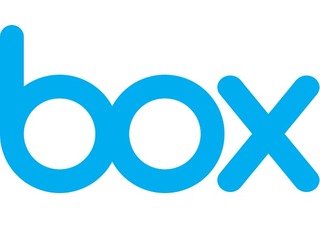Oxford Cancer Analytics raises $11M to detect lung cancer via a blood test
OXcan combines proteomics and artificial intelligence for early detection
Read more...
Cloud storage company Box has been planning its public offering for a year now. After delays and questions about long term viability, the IPO is finally here and it is going full steam ahead.
And things are looking positive, as the company announced on Thursday that it has upped its IPO price to $14 a share. With 12.5 million initially being offered, that means it can raise up to $175 million.
Box has also granted the underwriters a 30-day option to purchase up to an additional 1,875,000 shares of Class A common stock to cover over-allotments. At its current stock price, the company is said to be valued at $1.7 billion.
The company had initially set its price at $11 to $13 a share. The shares are expected to begin trading on the New York Stock Exchange on Friday, and will trade under the symbol “BOX.”
The road for Box's IPO has been far from smooth sailing.
The company initially filed to go public confidentially in 2014, taking advantage of a provision in the Jumpstart Our Business Startup (JOBS) Act. Those plans were scuttled, however, due to a downturn in the market for public cloud software companies, including Workday, Veeva Systems and Xero, all of which saw their stocks dip.
Since then, Box has added more to its coffers, raising a $150 million round of funding in July, to give it a $2.4 billion valuation, and added more acquisitions as well, including MedXT, a cloud-based medical image viewing, sharing and collaboration company, and Streem, a company that allows customers to stream files from the cloud to their desktop computers.
The company filed again with the SEC earlier this month, putting its IPO plans back into motion.
Founded in 2005, Box now has over 34,000 paying organizations, and over 25 million registered users. It is seeing over 2.5 billion content interactions every three months. While it started as a consumer-focused service, it pivoted to zero in on the enterprise. Clearly, it was a wise move.
Not all is well at Box, however. It's most recent SEC filing shed some light on the company's recent financial situation, and showed that the company is still not profitable.
In the nine months ending in October 2014, the company made $153.8 million in revenue, an 80% increase from the $85.4 million it made in the same period in 2013. At the same time, the company saw its net losses rise as well. The company lost $129 million in that nine-month period, up from $125 million the year before.
Those losses are primarily being driven by Box's sales and marketing expenses, which added up to over $152 million, up from $124 million in 2013. That is nearly three times as much as it spent on its next highest expense: research and development, which only cost the company $48 million in the same time period.
Aaron Levie, Box's dynamic and indefatigable co-founder and CEO, gave a Vator Splash talk in 2012, sharing his lessons and advice on how and why he made that decision. Join other leading CEOs and founders at Vator Splash Health on February 12 (get tickets here) and Splash Oakland this April 23rd. (get tickets here)
(Image source: businessinsider.sg)
OXcan combines proteomics and artificial intelligence for early detection
Read more...Nearly $265B in claims are denied every year because of the way they're coded
Read more...Most expect to see revenue rise, while also embracing technologies like generative AI
Read more...Startup/Business
Joined Vator on
Box provides secure, scalable content sharing that both users and IT love and adopt, including 82% of the FORTUNE 500. Box's dynamic, flexible content management solution empowers users to share and access content from anywhere, while providing IT enterprise-grade security and oversight into how content moves within their organizations. Content on Box can also be accessed through mobile applications, and extended to partner applications such as Google Apps, NetSuite and Salesforce. Box is a privately held company and is backed by venture capital firms Andreessen Horowitz, Bessemer Venture Partners, Draper Fisher Jurvetson, Emergence Capital Partners, Meritech Capital Partners, NEA, Scale Venture Partners, and U.S. Venture Partners, and strategic investors salesforce.com and SAP.



